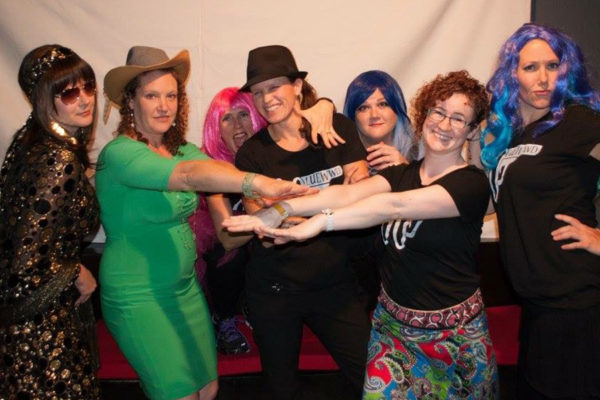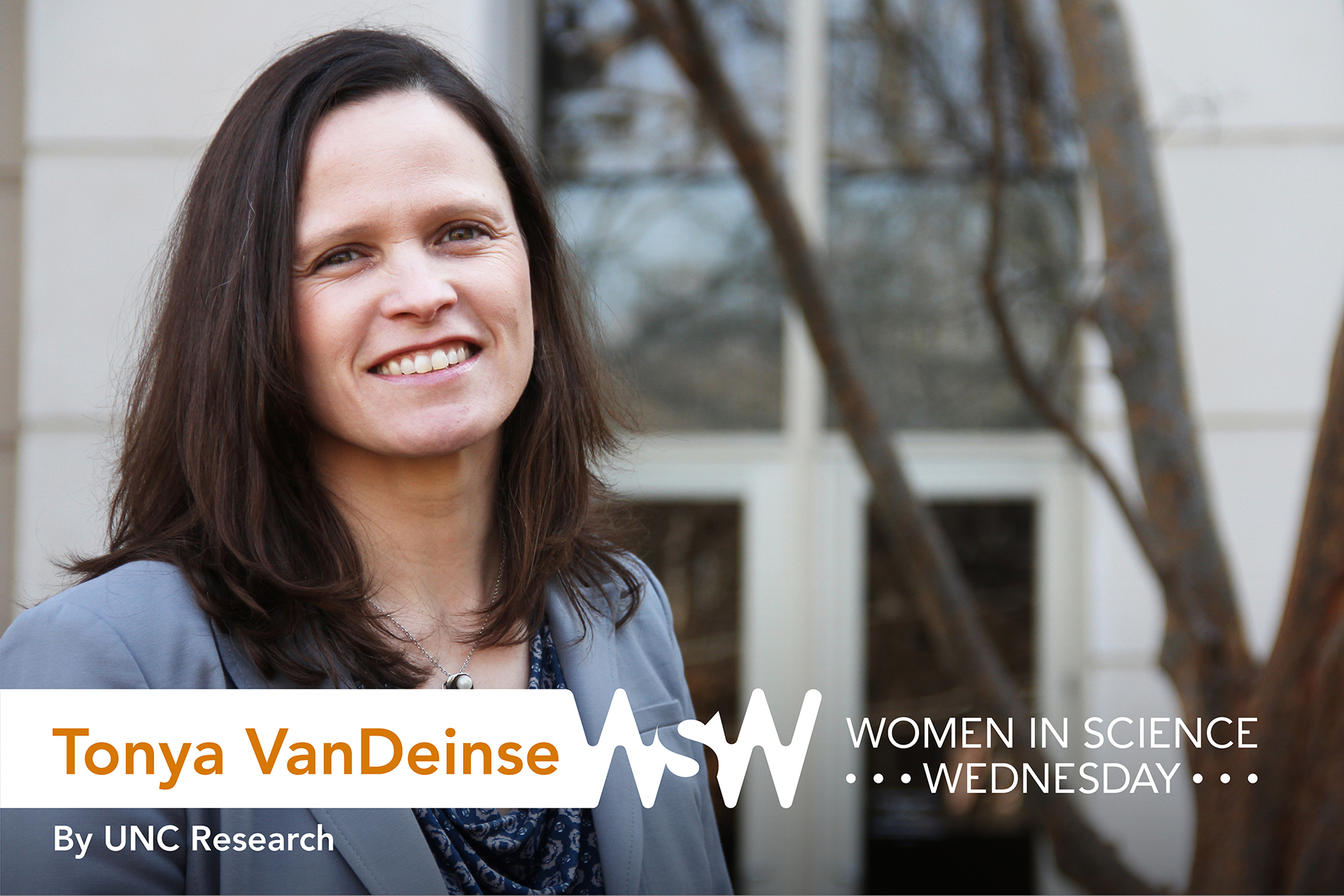When you were a child, what was your response to this question: “What do you want to be when you grow up?”
Describe your research in five words.
“Mental illness doesn’t equal dangerous.”
A radio DJ. As a kid, I was always sitting by my radio waiting for my favorite songs to come on so I could record them. I remember thinking that radio DJs talked too much — and I would be the kind of DJ who just played music. If someone told me as a kid that when I grew up I’d use my radio to listen to people talk on NPR, I would have never believed it.
Share the pivotal moment in your life that helped you choose your field of study.
When I was an undergrad, I worked on a project surrounding intimate partner violence and welfare reform. I ended up doing a lot of interviews with survivors. I knew then that I wanted to work on issues related to social and economic justice.

VanDeinse (center) and members of the League of Upper Extremity Wrestling Women of Durham huddle with reps from Partners for Youth Opportunity (PYO) before an event that raised more than $7,500 for PYO.
Tell us about a time you encountered a tricky problem. How did you handle it and what did you learn from it?
In one of our research team’s studies, we are trying to enhance the referral networks between specialty probation officers and mental health service providers. To do this, we rely a lot on managed care organizations to connect us with local mental health service providers in counties across the state. Over the course of the study, these managed care organizations – both individually and collectively – have faced a great deal of change and sometimes reorganization. Understandably, these changes mean that managed care organizations are sometimes not able to serve in the role that we originally designed. One of the ways that we’ve addressed this challenge is to begin to build our own local networks directly with service providers — sometimes “cold calling” — and engage them directly. Although this is arguably a less efficient way to build the networks of officers, it’s a good example of being able to adapt to changing environments when doing research in real world settings.
What are your passions outside of science?
Arm wrestling! About 8 years ago, my friends and I started an organization in Durham that organizes theatrical and competitive women’s arm wrestling events to raise money for organizations that support women and girls. It’s a lot of work and takes up a large portion of my spare time, but it is worth it! We have a lot of fun and I’ve met great people in Durham who are doing some incredible work for the community.


